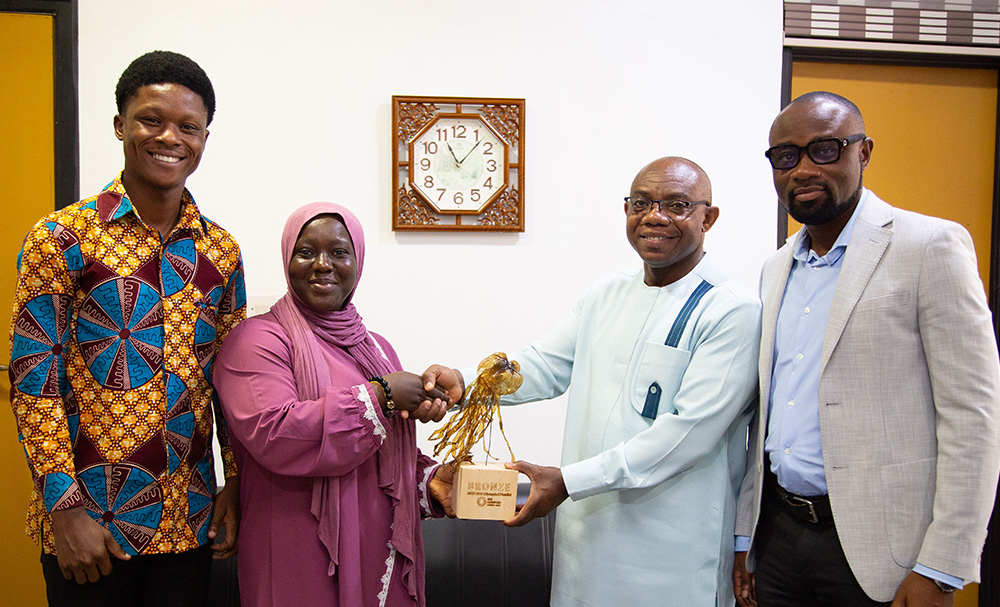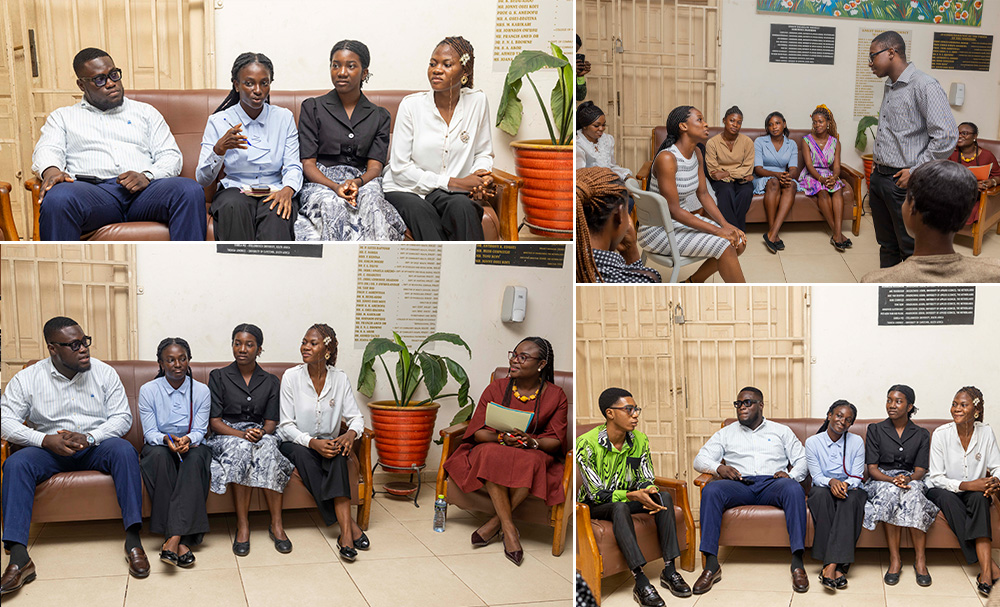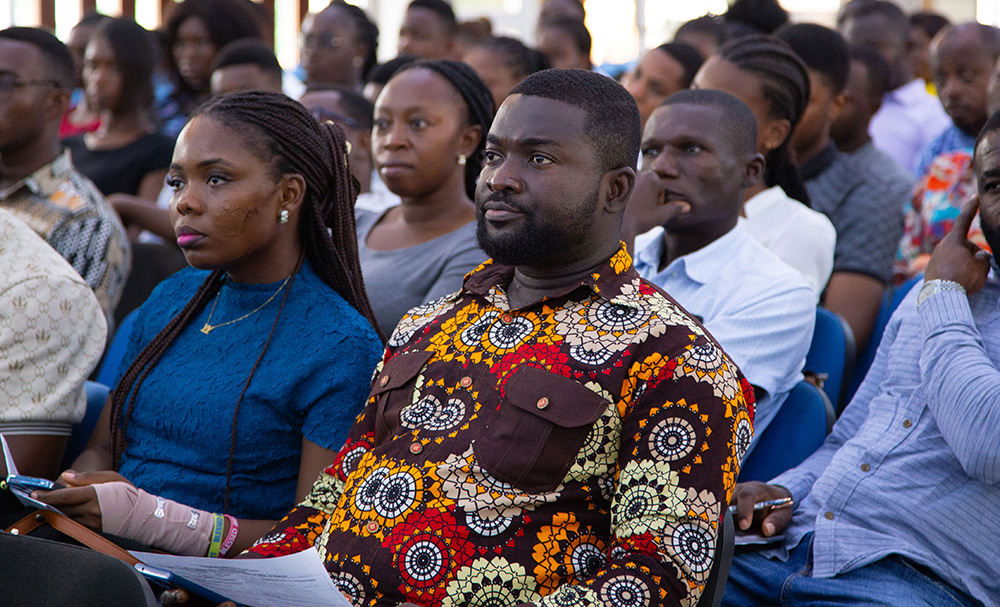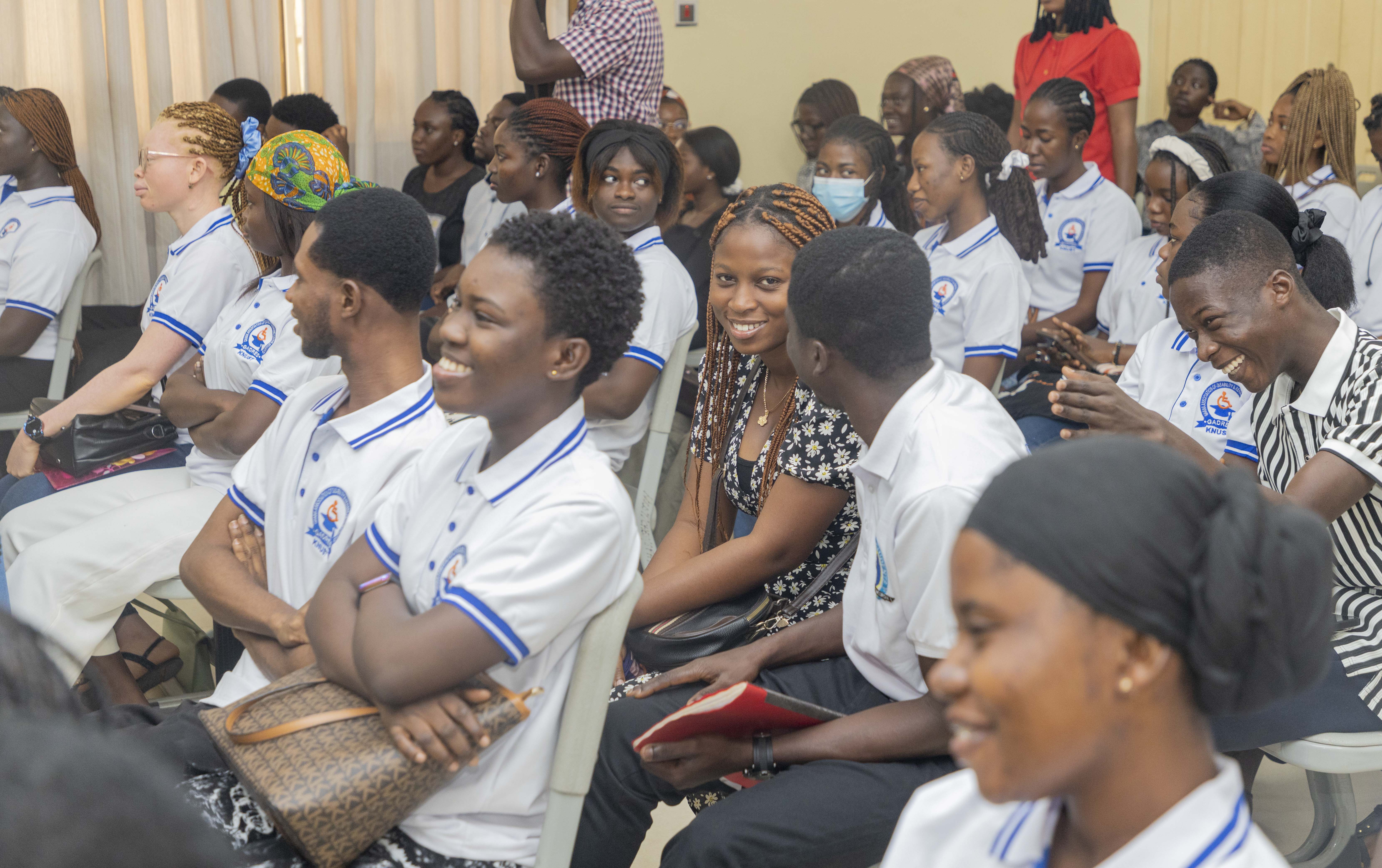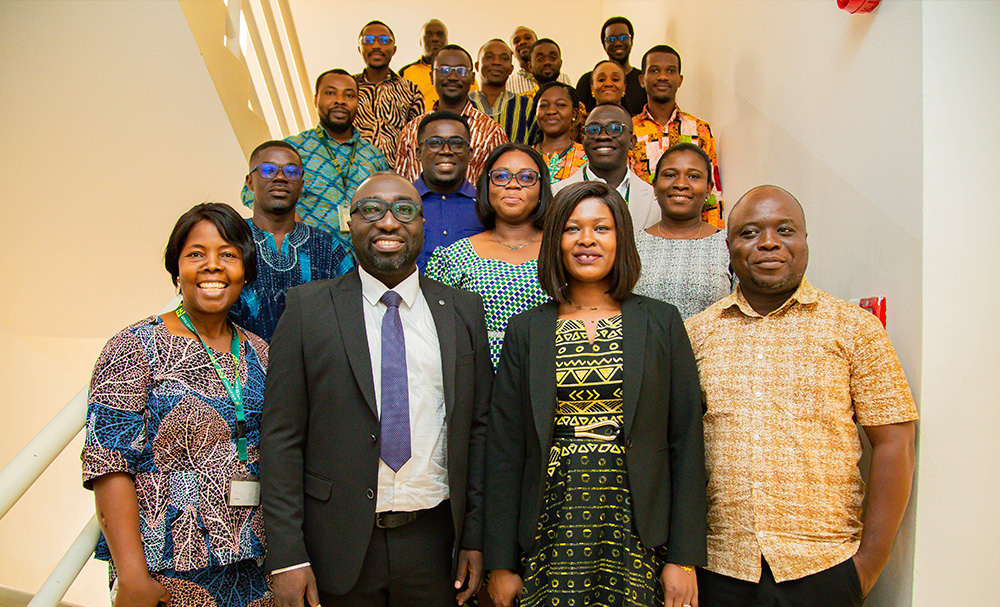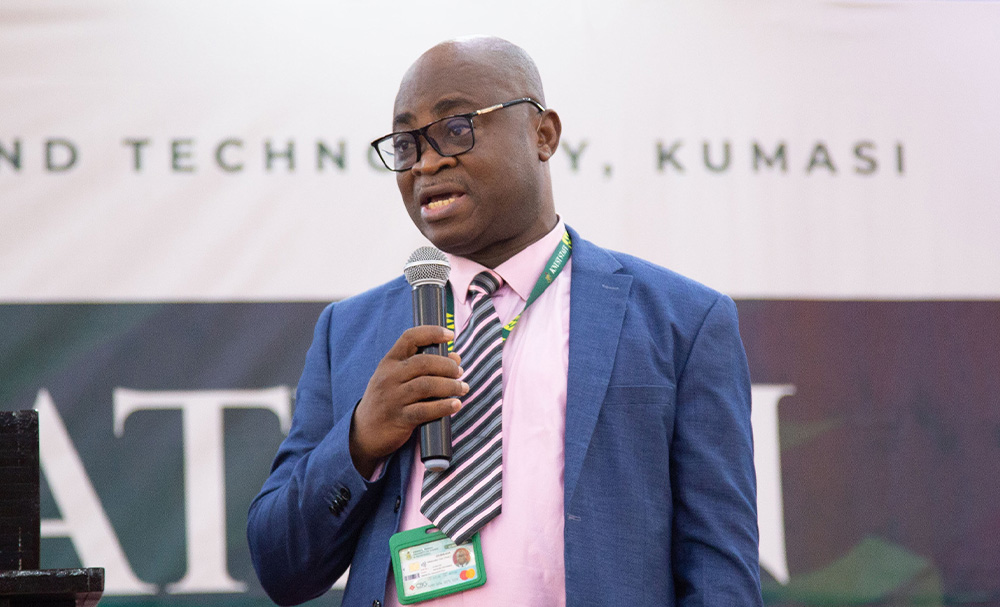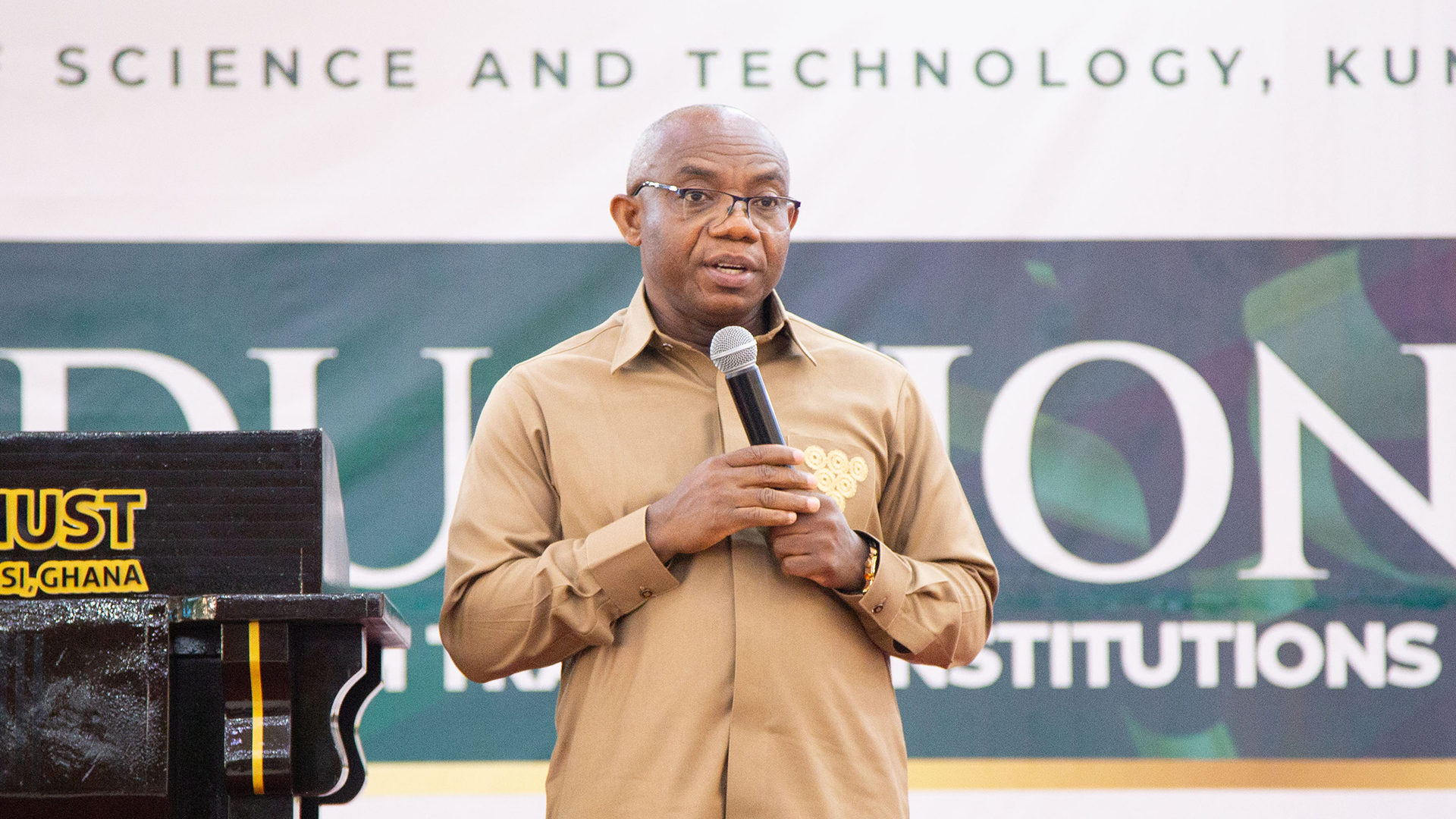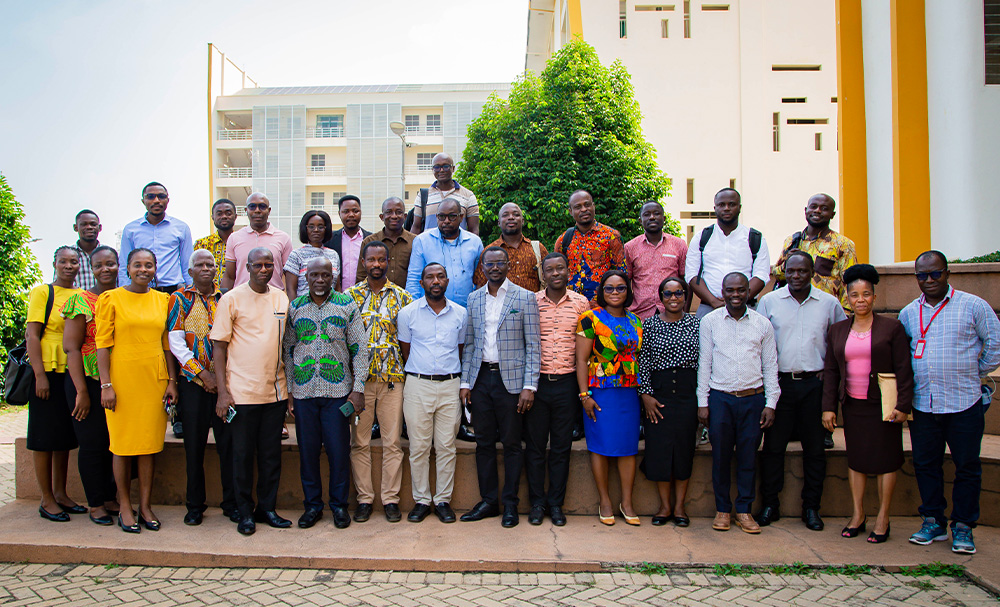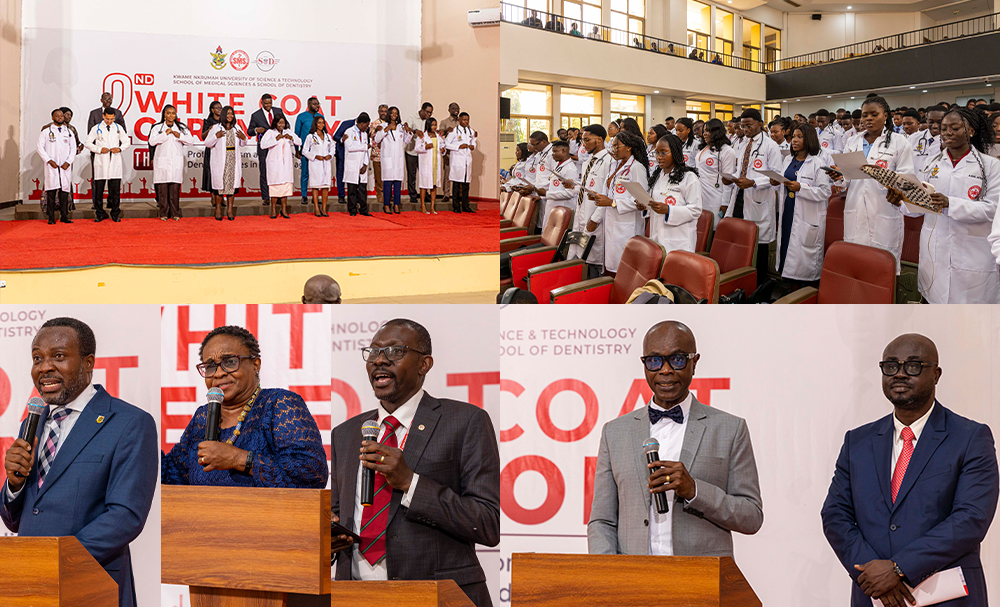FPPS Faculty Spotlight: Dr. John Nii Adotey Addotey – Pioneering Natural Product Research and Mentorship
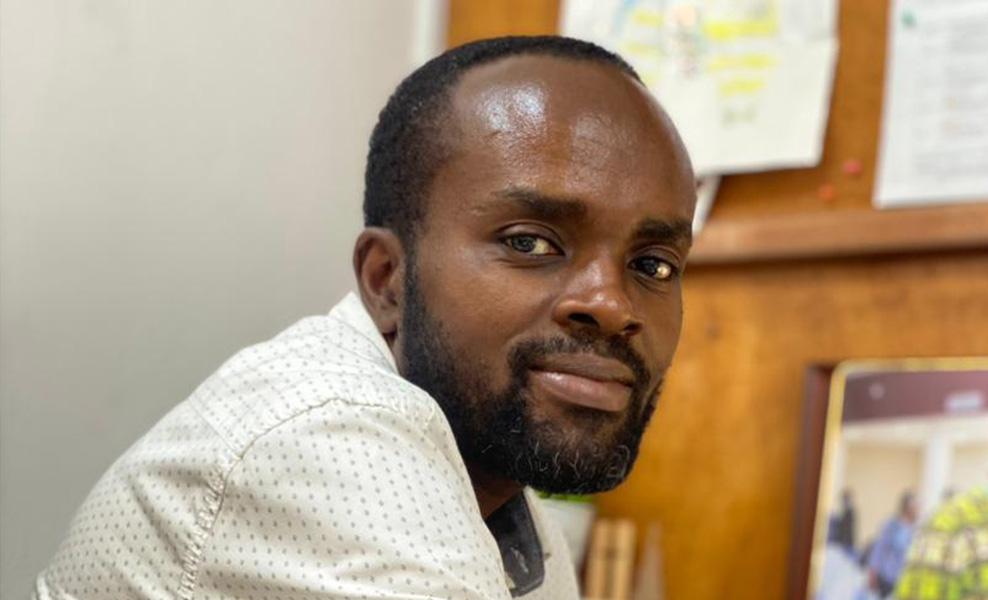
Born and raised in Accra, John's early life was marked by a love for learning and an insatiable curiosity about the natural world. At Presbyterian Boys' Secondary School (Presec, Legon), where he studied from 1997 to 1999, John first encountered his passion for science. Chemistry classes captivated him, and he spent hours in the lab, marveling at how substances combined and transformed — a quiet foreshadowing of his future as a pharmacist and pharmaceutical chemist. This passion drove him to pursue a Bachelor of Pharmacy degree at KNUST. His thirst for knowledge led him to further his studies, earning an M.Phil. in Pharmaceutical Chemistry at KNUST.
In 2015, John was awarded the prestigious DAAD/Ghana Government Scholarship, joining an elite cohort of 20 Ghanaian scholars to pursue a Ph.D. in Pharmaceutical Biology and Phytochemistry at the University of Muenster, Germany. During this time, he made significant strides in pharmaceutical research by isolating Clitorienolactone, a novel norneolignan compound from the Hairy Restharrow plant (Ononis spinosa). This compound possesses anti-inflammatory effects justifying the use of root extracts from O. spinosa in inflammatory conditions.
Unearthing Nature’s Medicine: The Discovery of Alstoboonine
At the heart of Dr. Addotey's research is the exploration of natural products to uncover bioactive compounds with therapeutic potential. One of his most significant recent works published in the Journal of Natural Products is on alstoboonine, a ulean-type indole alkaloid isolated from the leaves of Alstonia boonei, a medicinal plant widely used in West African traditional medicine. While the plant’s stem bark had been extensively studied for its anti-inflammatory and antipyretic properties, the phytochemistry and bioactivity of the leaves remained relatively unknown. John's research team identified alstoboonine alongside eight other alkaloids, characterizing them using analytical techniques such as mass spectrometry (MS), nuclear magnetic resonance (NMR), and electronic circular dichroism (ECD).
The results show that Alstoboonine has promise in fighting malaria by attacking the parasite that causes it. Importantly, the compound was not toxic to human cells, suggesting its safety for further drug development. This discovery is not just another addition to the catalog of chemicals; it offers hope for combating malaria, a disease that continues to devastate millions in sub-Saharan Africa.
Why This Research Matters
Dr. Addotey’s work goes beyond academic achievement — it addresses pressing global health challenges. Malaria remains one of the deadliest diseases in the world, with increasing resistance to existing antimalarial drugs. The discovery of alstoboonine demonstrates the potential of natural products in providing safer, more effective treatments.
Moreover, John's work emphasizes the importance of using local botanical resources for global health solutions. By combining traditional knowledge with modern pharmaceutical techniques, he hopes to help in reducing Ghana's reliance on imported drugs and inspire confidence in indigenous medicinal plants.
His research also contributes to the growing field of computational drug discovery and the synthesis of bioactive small molecules targeting antimicrobial resistance. In a world where infectious diseases and drug resistance pose serious threats, John’s interdisciplinary approach is more critical than ever.
Mentorship and Shaping the Future of Pharmaceutical Sciences
Beyond research, John is passionate about mentorship. As a faculty member at KNUST, he has supervised numerous undergraduate and postgraduate students, guiding them through complex research projects and encouraging them to push the boundaries of what is possible. His dedication to mentorship is reflected in his recognition as the Best Teaching Senior Member at the 2024 College of Health Sciences Excellence Awards.
John is also deeply committed to continuous professional development, volunteering as a reviewer for scientific journals and actively participating in courses to stay abreast of current research trends. Through his leadership, he hopes to inspire the next generation of scientists to see beyond limitations and strive for innovation.
Life Beyond the Lab: Family, Faith, and Personal Passions
While John's career is marked by scientific achievements, his life is enriched by family, faith, and personal passions. He is a devoted husband and father to two daughters, balancing the demands of academia with the joys of family life. In his free time, John enjoys traveling with his family, watching football and tennis, and exploring cooking-related YouTube videos, where he satisfies his curiosity by experimenting with new recipes. His faith is a central pillar of his life. As a Senior Presbyter of the Presbyterian Church of Ghana, he has spent nearly 20 years mentoring young people aged 12 to 18, providing leadership and guidance through challenging phases of their lives. Through his service, John imparts values of integrity, resilience, and compassion, qualities that are evident in his professional and personal life.
Philosophy: Good Ideas Must Give Way to Better
Dr. Addotey's personal philosophy — "good ideas must give way to better" — reflects his commitment to continuous improvement. Whether in research, mentorship, or personal growth, he believes that innovation is an ongoing process, driven by curiosity and the willingness to challenge the status quo.
This mindset has propelled him to success not only in scientific discovery but also in his role as a mentor and leader. Through his work, he is not just advancing pharmaceutical research — he is shaping a future where science improves lives.
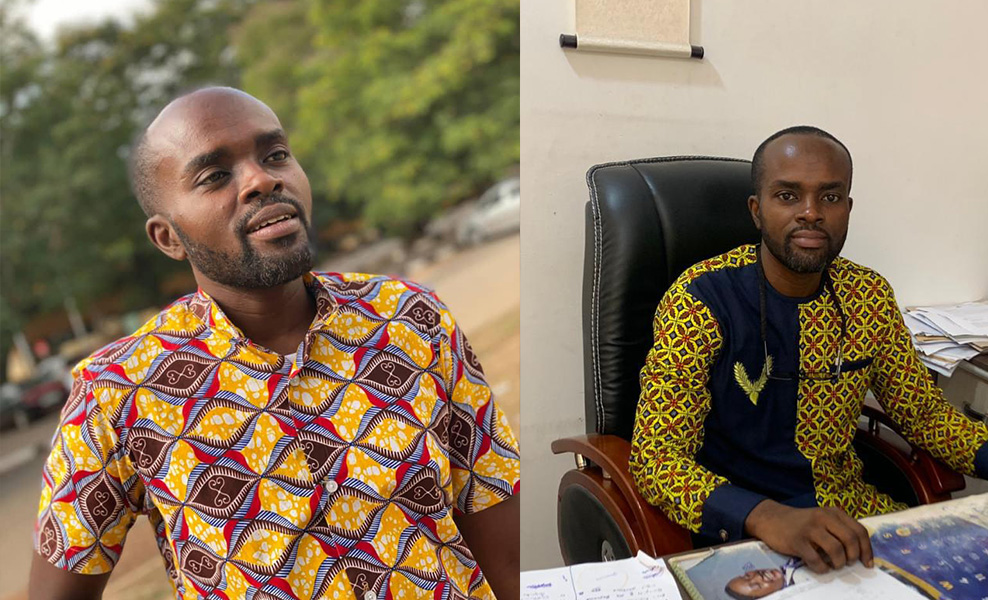
Dr. John Nii Adotey Addotey welcomes collaborations and partnerships in natural product research, drug discovery, and scientific mentorship. Find out more about his research and academic contributions on this platform. Explore his research profile to learn more about his groundbreaking work in bioactive compound discovery, antimicrobial drug synthesis, and the use of computational tools in drug development. Science is not just about discovering new compounds — it is about transforming lives. And Dr. John Nii Adotey Addotey is leading that transformation.
